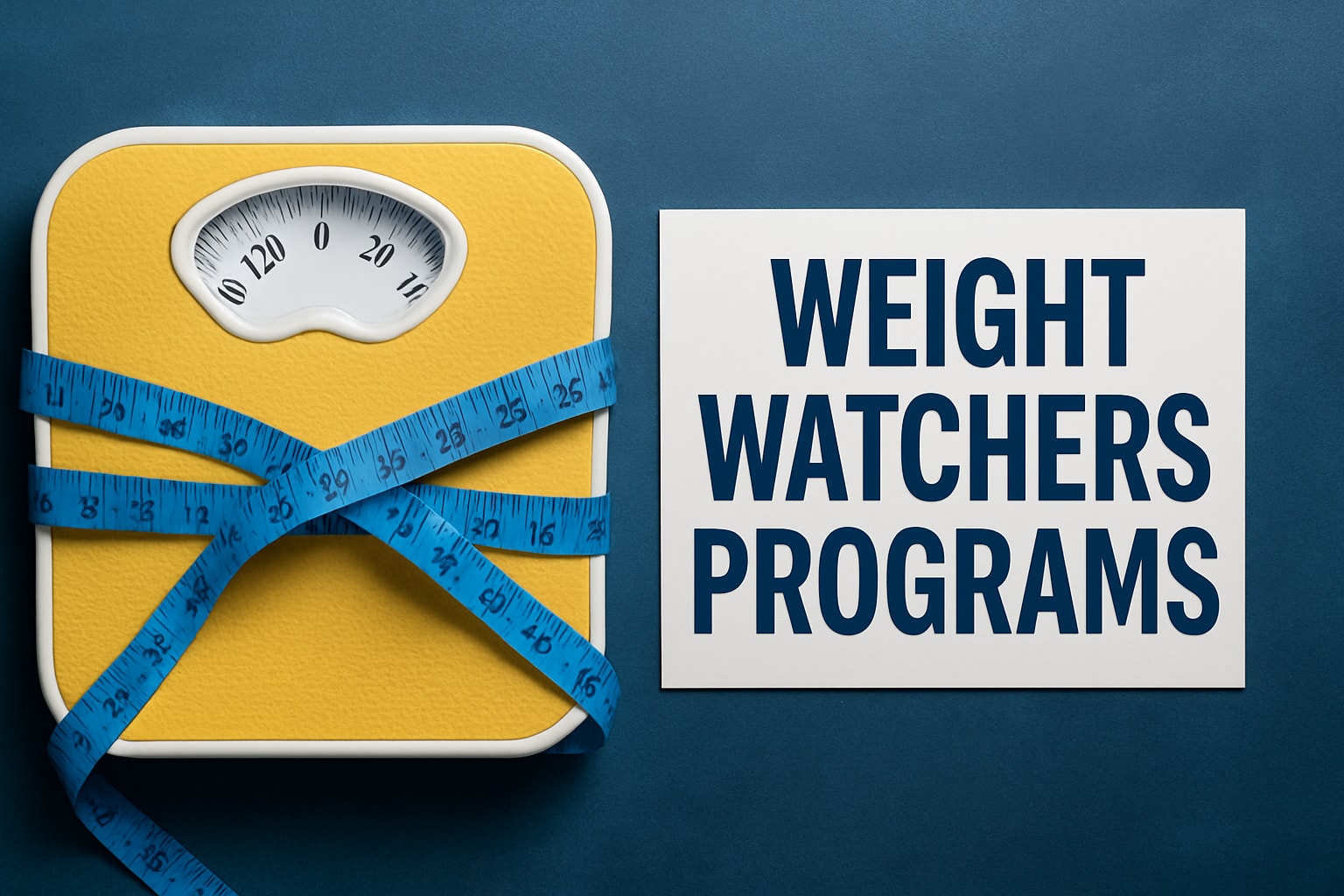Did you know that misuse of laxatives for weight loss has surged, with more people turning to quick fixes in 2025 than ever before? Confusion and myths about how these products work are widespread, often leading to risky choices.
This guide will uncover the real facts behind laxatives for weight loss, clearly explaining how they function, their actual effects on body weight, and the serious health risks involved. You will also discover safer practices and healthier, science-backed alternatives for sustainable results.
If you are seeking answers about safe weight management, read on for evidence-based insights and practical strategies. For more resources on effective approaches, visit weight management strategies.
Understanding Laxatives: Types, Mechanisms, and Intended Uses
With the increasing attention on laxatives for weight loss, understanding what these medications truly are is crucial in 2025. Many people encounter a wide range of information online, but few know the facts about how laxatives work, their intended purpose, and the real risks behind misuse.

What Are Laxatives?
Laxatives are medications designed to relieve constipation by promoting bowel movements. They come in several forms, including pills, powders, liquids, and suppositories. Each form is intended to provide short-term relief for individuals experiencing irregular or difficult bowel movements.
These medications serve a medical purpose, such as helping after surgery or when certain conditions slow digestion. Common types include:
- Bulk-forming (e.g., psyllium)
- Stimulant (e.g., senna, bisacodyl)
- Osmotic (e.g., polyethylene glycol)
- Lubricant (e.g., mineral oil)
- Stool softeners (e.g., docusate sodium)
Despite their over-the-counter availability, laxatives for weight loss are not recommended. Their accessibility has unfortunately contributed to an increase in misuse, especially among those seeking rapid changes on the scale. In fact, recent trends show that more people are turning to these products in hopes of managing weight, yet medical experts stress that laxatives are not designed or approved for altering body weight. For more guidance on safe health strategies, see natural weight management strategies.
Types of Laxatives and How They Work
Laxatives for weight loss are often misunderstood, especially when it comes to how each type functions in the digestive system. Here’s a breakdown:
- Bulk-forming laxatives absorb water, increasing stool bulk and making it easier to pass.
- Stimulant laxatives trigger the muscles of the intestines to contract, producing a bowel movement faster, often within 6 to 12 hours.
- Osmotic laxatives draw water into the colon, softening stool over 2 to 3 days.
- Lubricant laxatives coat the stool, making passage smoother.
- Stool softeners moisten stool, preventing straining.
Stimulant laxatives are the most commonly misused when it comes to laxatives for weight loss because of their rapid action. However, this quick effect is misleading, as any weight change is mostly due to water loss rather than fat reduction. For more insights into pitfalls of rapid weight management methods, check common mistakes losing weight fast.
If you are seeking healthier options, digital solutions like science-backed weight loss tips can guide you toward sustainable results. These platforms focus on building habits rather than relying on risky shortcuts.
Medical Indications vs. Weight Loss Myths
Medically, laxatives are prescribed for constipation, not as tools for fat loss. A common myth suggests that laxatives for weight loss can "flush out" calories before the body absorbs them. Medical research confirms this is false. By the time laxatives act, most nutrients and calories from food have already been absorbed in the small intestine.
The temporary weight drop seen after using laxatives is primarily from water loss, not a true reduction in body fat. Once the body rehydrates, weight returns to normal. Misusing these medications can have serious health consequences, including dehydration and long-term digestive issues. No health authority supports the use of laxatives for weight management.
To understand more about the dangers and the link to eating disorders, visit Laxative misuse and eating disorders. If you are concerned about the risks of pills and similar products, see dangers of weight loss pills.
For effective and safe alternatives, explore healthy weight loss resources.
How Long Do Laxatives Take to Work?
The onset of action varies depending on the type of laxative used. For example:
- Stimulant laxatives: 6–12 hours
- Bulk-forming laxatives: 12–72 hours
- Osmotic laxatives: 2–3 days
Individual response may differ, but people seeking immediate results from laxatives for weight loss are often disappointed. Fast-acting types are more likely to be abused for their perceived quick effects, but these results are unsustainable and do not affect actual body fat.
Many are surprised to learn that the effects of these medications are short-lived and do not impact long-term weight. For those looking to make lasting changes, weight loss support and recovery and mindful eating techniques offer healthier paths forward.
If you want to explore digital solutions for building healthy habits, consider weight loss app for healthy habits.
Laxatives for Weight Loss: Myths, Realities, and Health Impacts
Relying on laxatives for weight loss has become a growing trend, but the reality is far from what quick-fix solutions promise. Understanding the true effects, risks, and medical perspectives is crucial to making informed, healthy choices. Let us examine the myths and realities behind laxatives for weight loss and provide evidence-based guidance for better health.

Do Laxatives Cause Real Weight Loss?
Many believe using laxatives for weight loss leads to rapid results, but this is a misconception. The scale may show a lower number after using laxatives, yet the change comes from water loss, not fat reduction. Nutrients and calories are absorbed in the small intestine long before laxatives take effect in the colon.
If you notice a quick drop in weight, it is usually due to dehydration. Once your body rehydrates, the weight returns. In fact, studies reveal that 4% of the general population has engaged in laxative abuse, seeking a shortcut that fails to deliver sustainable results. The myth that laxatives for weight loss can "cleanse" your body is simply not supported by science.
Instead of risking your health, explore natural weight management strategies that focus on lasting change. Remember, true weight loss targets fat, not just water, and requires lifestyle shifts, not risky shortcuts.
Short-Term and Long-Term Health Risks
Using laxatives for weight loss poses both immediate and lasting dangers. In the short term, dehydration is common, with symptoms ranging from headaches and fatigue to rapid heartbeat. More severe dehydration can quickly escalate, especially if laxatives are used repeatedly.
Electrolyte imbalances are another critical risk. These imbalances can cause muscle cramps, irregular heartbeats, confusion, and in extreme cases, seizures or coma. Chronic misuse may lead to dependency, disrupting your body's natural ability to regulate bowel movements.
Alarmingly, laxative misuse is linked to kidney failure and increased mortality rates. Emergency room visits for complications have risen, highlighting the urgent need for prevention. If you want safer alternatives, check out science-backed weight loss tips or read 8 essential tips to choose the right weight loss program for healthier guidance.
Psychological and Behavioral Consequences
Laxatives for weight loss are not only physically risky but can also lead to serious psychological impacts. Misusing laxatives is often seen in disordered eating patterns, such as bulimia nervosa, where individuals use them as a compensatory behavior after binge eating. This behavior is frequently hidden, making it harder to detect and treat.
Laxative abuse commonly co-occurs with eating disorders, creating a cycle of psychological dependency and worsening body image concerns. According to Laxative misuse in bulimia nervosa, this pattern can intensify emotional distress and the need for professional intervention.
If you or someone you know is struggling, explore weight loss psychology techniques or read How to stop binge eating to find supportive resources and recovery paths.
Red Flags and Warning Signs of Misuse
Recognizing laxative misuse early is essential for prevention and recovery. Common red flags include frequent or unexplained use of laxatives for weight loss without medical need, secrecy around their use, and difficulty stopping despite negative consequences.
Physical symptoms are also telling. Chronic diarrhea, abdominal pain, and signs of dehydration—such as dry mouth and dizziness—should not be ignored. Sudden weight fluctuations or a preoccupation with bowel movements can signal an underlying issue.
Eating disorder clinics have reported an increase in cases linked to laxatives for weight loss. If you spot these warning signs, seek help and learn more about healthy weight loss resources or review self-hypnosis for weight loss as a gentle, evidence-based option.
Medical Opinions and Guidelines (2025 Update)
Medical experts and organizations are united in their stance: laxatives for weight loss are unsafe and not recommended. The latest 2025 guidelines stress education and prevention, warning against non-medical use.
For instance, the National Eating Disorders Association has taken a strong position against laxative misuse, highlighting both the physical and psychological risks involved. Health professionals advocate for sustainable, evidence-based weight management strategies, not quick fixes.
Recent research also points to the dangers of normalizing laxative use through social media. Instead, focus on how to lose weight naturally and trust science-backed approaches for long-term success.
Safe Use of Laxatives: When and How to Use Them Responsibly
Using laxatives for weight loss is a risky practice that can harm your health and well-being. Understanding when and how to use these medications responsibly is crucial to avoid dangerous side effects and long-term complications. In this section, you will learn the safe and intended uses of laxatives, how to recognize misuse, ways to manage side effects, and healthier alternatives for digestion and weight management.

Proper Medical Indications for Laxative Use
Laxatives are designed to relieve constipation, not for cosmetic reasons or rapid weight loss. Doctors may recommend them if you struggle with constipation due to certain medications, dietary changes, or medical conditions. Appropriate use is always short-term and closely supervised by a healthcare professional.
Examples include recovery after surgery, managing chronic illnesses that affect digestion, or counteracting side effects of specific treatments. In these scenarios, using laxatives for weight loss is not appropriate. Instead, the focus is on restoring normal bowel function.
Most safe use cases involve temporary solutions, and ongoing use is rarely advised. Before starting any regimen, consult a medical expert to ensure you understand the risks and benefits. For more on healthy approaches, see natural weight management strategies.
Recognizing and Preventing Misuse
Misusing laxatives for weight loss is a growing concern, especially among young adults. Warning signs include taking them after overeating, increasing doses without medical advice, or ignoring label instructions. Education is your first defense: always read ingredient lists, follow dosage guidelines, and never use these medications to control weight.
The over-the-counter availability of laxatives can create a false sense of safety, but this does not mean they are risk-free. If you notice frequent, unexplained use in yourself or someone you care about, it may be time to seek help. Research highlights the link between diet pill and laxative use linked to eating disorders, making early intervention critical.
To prevent misuse, inform yourself with evidence-based resources like weight loss psychology techniques and always prioritize your long-term health.
Managing Side Effects and When to Seek Help
Even when used correctly, laxatives can cause mild side effects such as bloating, stomach cramps, or diarrhea. More serious reactions include dehydration, severe electrolyte imbalances, and kidney issues. If you experience symptoms like persistent vomiting, fainting, confusion, or rapid heartbeat, seek medical attention immediately.
Prompt intervention can prevent complications and support safer recovery. Emergency room visits related to laxatives for weight loss have risen in recent years, making awareness more important than ever. Use resources like science-backed weight loss tips to educate yourself about safe practices.
If you are unsure whether your symptoms are serious, it is always better to err on the side of caution and reach out to a healthcare provider.
Steps for Safe Discontinuation
Stopping laxatives for weight loss should never be abrupt. Gradually reducing usage under medical supervision helps prevent rebound constipation and supports your digestive system as it returns to normal function. Healthcare providers may suggest increasing dietary fiber, drinking more water, and slowly introducing healthy habits.
Sudden cessation can cause temporary digestive discomfort, but these symptoms are usually short-lived with proper support. Psychological support may be necessary, especially if dependency has formed. Programs like Oneleaf’s healthy weight loss app offer digital guidance and community support for those transitioning away from unhealthy habits.
For additional tips, read How to stop binge eating to understand the behavioral aspects behind laxative misuse.
Alternatives for Healthy Digestion and Weight Management
There are safer, more effective ways to support digestion and manage weight than using laxatives for weight loss. Simple strategies include increasing your intake of fruits, vegetables, and whole grains, drinking enough water, and engaging in regular physical activity. Mindful eating and stress management techniques can also improve overall well-being.
Instead of quick fixes, evidence shows that sustainable lifestyle changes are more effective in the long term. Digital tools like weight loss support and recovery programs can help you build healthier habits at your own pace.
Discover more about self-hypnosis for weight loss and explore how to lose weight naturally for practical, research-backed guidance.
Laxatives, Eating Disorders, and the Role of Mental Health
The relationship between laxatives for weight loss and eating disorders is both complex and deeply concerning. Many individuals who misuse laxatives for weight loss are struggling with underlying psychological challenges. Laxative abuse is especially prevalent in bulimia nervosa and purging-type anorexia, where it is often used as a compensatory behavior after binge eating. According to studies, about 4% of the general population has reported laxative misuse. This behavior often signals deeper issues, such as anxiety, depression, or obsessive thoughts about body image. Medical research, including Laxative abuse and psychopathology in eating disorders, highlights the strong association between laxative misuse and specific psychopathological features across eating disorder subtypes. Early intervention is critical, as identifying these patterns can prevent further escalation. For more guidance on healthy approaches, visit natural weight management strategies.

Psychological Drivers and Warning Signs
Many people turn to laxatives for weight loss due to dissatisfaction with their body image, societal pressures, and the influence of diet culture. Social media often glamorizes quick-fix solutions, increasing the risk for unhealthy behaviors. Emotional distress, such as anxiety or feelings of inadequacy, can drive individuals to misuse laxatives for weight loss in an attempt to gain control or cope with negative emotions.
Recognizing warning signs is crucial. Look for:
- Secretive behaviors around eating or bathroom habits
- Obsession with weight, shape, or frequent weighing
- Ritualistic use of laxatives for weight loss, especially after eating
Addressing the root causes through open communication and professional support is essential for recovery. If you notice these behaviors in yourself or others, consider seeking expert advice or exploring science-backed weight loss tips for healthier solutions.
Treatment and Recovery Options
Recovery from laxatives for weight loss misuse requires a multidisciplinary approach. Medical professionals, dietitians, and mental health providers work together to address both the physical and psychological aspects of the problem. Cognitive-behavioral therapy (CBT) is often used to help individuals change unhealthy thought patterns and develop positive coping strategies. Support groups and helplines, such as those offered by the National Eating Disorders Association, play a vital role in connecting individuals to resources and encouragement.
Early treatment significantly improves outcomes. With the increasing demand for virtual and telehealth services in 2025, more people can access care from home. For additional information on overcoming disordered eating, explore How to stop binge eating and learn about weight loss psychology techniques. Remember, recovery is possible with the right support and commitment.
How to Help Someone at Risk
If you suspect a loved one is misusing laxatives for weight loss, approach the situation with empathy and understanding. Recognize the signs:
- Frequent use of laxatives for weight loss without medical need
- Sudden weight changes or preoccupation with bowel movements
- Physical symptoms like chronic diarrhea or dehydration
Encourage professional evaluation and offer resources, such as weight loss support and recovery or self-hypnosis for weight loss. Avoid judgmental language and focus on open, supportive communication. Loved ones play a crucial role in early intervention and recovery from laxatives for weight loss misuse. For more guidance, explore healthy weight loss resources or discover how to lose weight naturally.
Healthy, Science-Backed Alternatives to Laxative Use for Weight Loss
The search for fast, dramatic results has fueled the popularity of laxatives for weight loss. However, true and lasting change comes from evidence-based strategies. If you want to move beyond myths and find healthy, sustainable ways to reach your goals, this section will guide you through science-backed alternatives.
Why Quick-Fix Solutions Don’t Work
Many people try laxatives for weight loss, hoping for immediate results. The reality is that these products only cause a temporary drop in water weight, not actual fat loss. Once you rehydrate, the scale will return to its original number.
Research shows that quick fixes like laxatives for weight loss and crash diets rarely lead to lasting change. Instead, these methods often result in disappointment and can harm your health. Sustainable progress comes from long-term habits, not shortcuts. For a healthier approach, explore natural weight management strategies.
Building Sustainable Habits for Weight Management
To move away from laxatives for weight loss, focus on building routines that support your well-being. Start with small, manageable changes in your daily life.
- Choose whole grains, fruits, and vegetables at each meal.
- Drink plenty of water throughout the day.
- Practice mindful eating to better recognize hunger and fullness cues.
These habits create a strong foundation for real progress. Consistency, not intensity, is the key. By prioritizing sustainable actions, you can avoid the pitfalls of laxatives for weight loss and protect your long-term health. For more tips, visit weight loss app for healthy habits.
The Power of Neuroscience-Based Weight Loss
Innovative approaches now leverage neuroscience to help people move beyond laxatives for weight loss. Understanding how your brain influences cravings and habits can transform your relationship with food.
Programs like Oneleaf use self-hypnosis and guided audio sessions to help users rewire unhealthy behaviors. These tools are grounded in science and support lasting change by addressing the root causes of overeating. As digital health solutions become more popular, they offer accessible options for those seeking alternatives to laxatives for weight loss. Learn more about how to lose weight naturally.
Digital Tools and Apps for Healthy Weight Loss
Digital tools can provide daily support as you transition away from laxatives for weight loss. Many apps offer personalized coaching, habit tracking, and community encouragement.
- Use apps that focus on psychology and neuroscience, not restrictions.
- Look for features like mindful eating reminders and progress logs.
- Choose programs that fit seamlessly into your lifestyle.
Accessible, evidence-based technology makes it easier than ever to build new habits. For digital solutions that support your journey, check out science-backed weight loss tips.
Additional Resources for Evidence-Based Weight Loss
When moving beyond laxatives for weight loss, access to reliable resources is crucial. Explore these expert articles and guides to deepen your understanding:
- How to stop binge eating: Practical steps and mental strategies.
- How self-hypnosis can help with weight loss: Insights on reprogramming your mindset.
- Weight loss psychology techniques: Tools for sustainable change.
- Healthy weight loss resources: Trusted tips and programs.
- Digital health programs for lasting results: See how technology can support your progress.
- Natural weight management strategies: Evidence-based lifestyle changes.
Remember, overcoming the urge to use laxatives for weight loss is possible with the right support and information. If you’re ready to commit to real change, use these resources to build a healthier, happier future.
Frequently Asked Questions About Laxatives and Weight Loss
If you have questions about laxatives for weight loss, you are not alone. Here, we address the most common concerns to help you make safe, informed decisions.
Do Laxatives Make You Lose Weight?
Laxatives for weight loss often seem tempting, but do they truly reduce body fat? The answer is no. Laxatives mainly cause a temporary drop in weight due to water loss. Once you rehydrate, the scale typically returns to normal.
- The body absorbs calories and nutrients before laxatives work.
- Any decrease you see is not fat loss, but fluid loss.
- According to WebMD and medical experts, there is no lasting weight reduction.
It is important to note that using laxatives for weight loss does not impact calorie absorption. For a breakdown of the facts, see laxatives and weight loss facts. Instead of relying on quick fixes, consider science-backed approaches such as natural weight management strategies.
Are There Any Safe Ways to Use Laxatives?
The only safe way to use laxatives for weight loss is under medical supervision, and only for treating constipation. Over-the-counter products are not risk-free, and should never be used for cosmetic purposes.
- Always follow dosage instructions provided by your healthcare provider.
- Avoid using laxatives after overeating or as a regular habit.
- Consult your doctor before starting any laxative product.
For those seeking healthy alternatives, explore healthy weight loss resources. You can also learn about how self-hypnosis can help with weight loss for a safer, more sustainable path.
What Should I Do If I’ve Been Misusing Laxatives?
If you have used laxatives for weight loss in ways not recommended by your doctor, seek medical guidance immediately. Early intervention helps prevent health risks such as dehydration and electrolyte imbalances.
- Gradually stop use under medical supervision.
- Get psychological support if needed.
- Watch for warning signs: fatigue, confusion, or irregular heartbeat.
Recovery is possible when you reach out for help. Find ongoing support at weight loss support and recovery, and read How to stop binge eating for more evidence-based strategies. Explore weight loss psychology techniques to build healthier habits for the long term.
After everything you’ve learned about laxatives and weight loss, it’s clear that safe, lasting change starts with understanding your body and mind—not quick fixes or risky shortcuts. If you’re ready to discover healthier, science-backed ways to reach your goals, I encourage you to take the next step and explore what truly works for you. In just a few minutes, you can get personalized insights to help you break old habits and create new ones that last. Let’s make informed decisions together—your health and confidence are worth it.
Start Quizz















